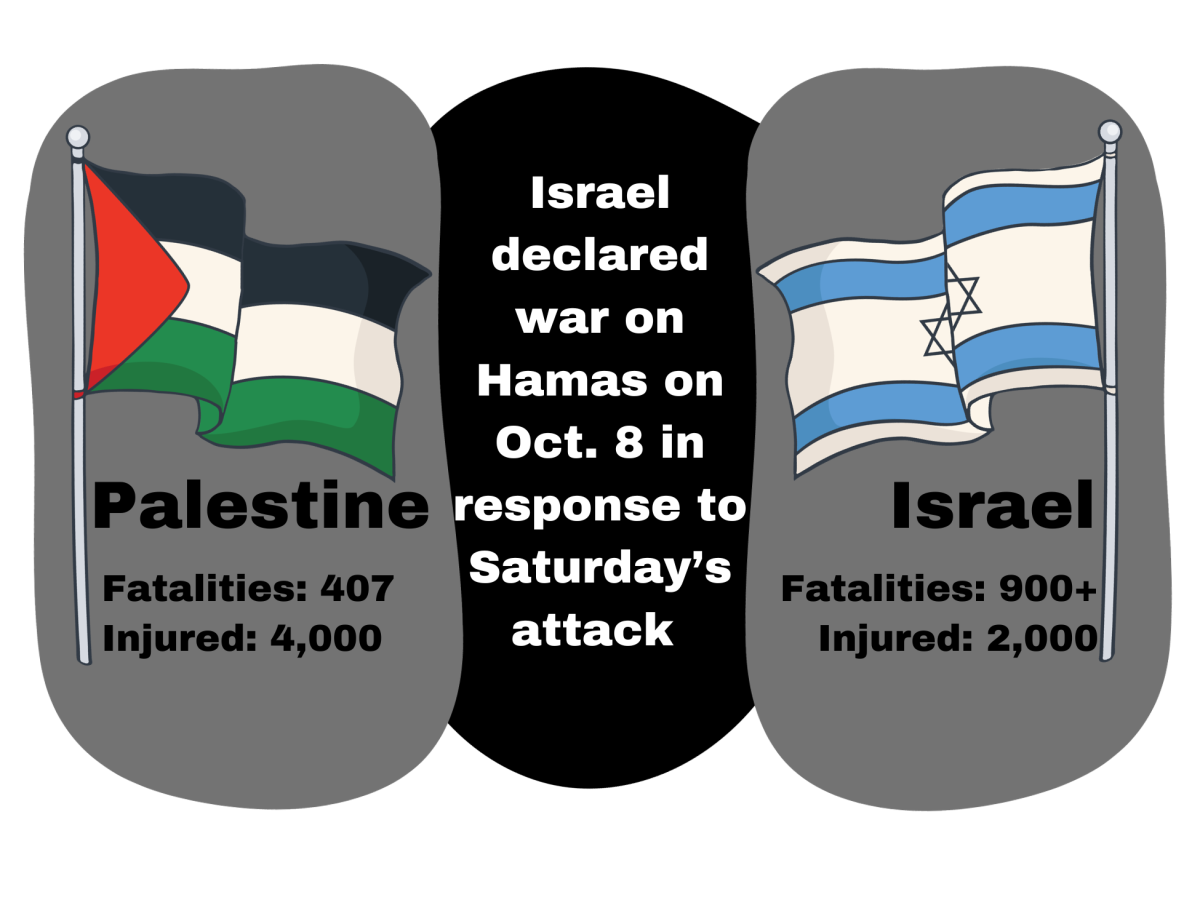
Graphic by Alicia Alvarez
On Sunday, Israel formally declared war on militant and political organization Hamas, after it was attacked by the group on Saturday which has de facto governed the Gaza Strip since 2007, according to a Monday Al Jazeera article.
This is the latest in a nearly century-long conflict.
The conflict began when the British government committed the establishment of the Mandate of Palestine as land for a Jewish state in 1947, according to a Monday article by Al Jazeera detailing the history of the conflict.
The conflict escalated further after the establishment of the State of Israel on May 14, 1948, according to the same article.
In response to the attack from Hamas, the Israeli military bombed the Gaza Strip area, killing 500 Palestinians.
More casualties have been reported, with 900 Israelis and 704 Palestinians being killed, including 4,000 Palestinians and 2,000 Israelis injured in the latest escalation, according to live updates from Al Jazeera.
Israelis proceeded to mobilize troops ordering a “complete siege” of the Gaza Strip, signaling a major ground invasion of the area, according to a Monday New York Times article.
The newly announced siege on Gaza cuts off food, electricity and water supplies, according to a Monday NBC News article.
Arthur Zárate, SJSU Assistant Professor of Global Humanities, said the blockade has been going on for years.
“Gaza has been under blockade by the Israeli government for a decade and a half. Human Rights Watch describes Gaza as an ‘open-air prison,’ ” Zárate said.
SJSU alumnus Qais Hamadi said he acknowledged that while the conflict has lasted almost a century, the blockade was installed 16 years ago.
“I am very saddened that innocent civilians are going to be casualties in a war between the two countries. The result of the tension has resulted in the attack on Hamas,” Hamadi said.
Zárate said decisions the United States government makes deeply affect the lives of many citizens in the Middle East, and Palestinians and Israelis are no exception.
“Palestinians need to be able to live with peace and dignity and have sovereignty over their lives,” he said.
Zárate said most of his students are U.S. citizens and it behooves them to learn about a region that the government has played such an important role in.
“Israelis deserve to live in a viable, functioning state and to live in peace, and security, and so do Palestinians,” Zárate said.